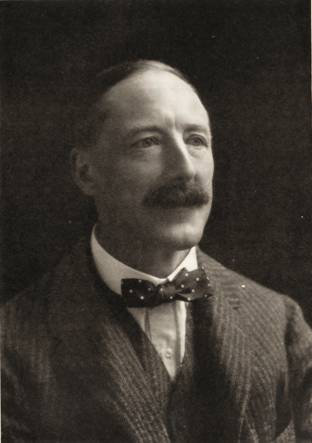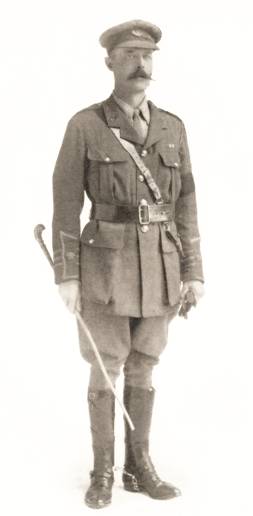In Memoriam
John Cecil Atkinson.
By the death of Cecil Atkinson, their President, the Yorkshire Ramblers’ Club sustains a very heavy loss. Thoughtful, cultured, kindly, cheerful, full of boyish enthusiasms, he was the very embodiment of the best type of mountaineer.
No one in Leeds could have represented the Club better than he did. He was a thorough sportsman, always keen about any form of sport in which he could take part in the limited time at his disposal. I well remember how when the bicycle came in, he was among the first to go on long expeditions on Saturday afternoons, nothing daunted by the terrific tosses which he took.
I cannot recollect when he first became a member of the Club, but it was at Easter, 1893, that I had the pleasure of accompanying him, J. A. Green, and Alfred Holmes to Wastdale Head, where we climbed Napes Needle, the Pillar Rock by the North Face, and Scawfell by several routes. I only climbed with him once in Switzerland, where we spent a holiday in the Maderaner Tal, and did the Grosse Windgälle together, guided by the Supersaxos of Saas.
Atkinson was a fine cragsman, thin, spare, with a long reach, he was able to negotiate the most difficult climbs with perfect ease. I can see him now, tackling that very difficult gully on the north face of Simon’s Seat, to the intense amazement of some who were standing on the top and who greeted him on his accomplishment with the remark, “I suppose you must be a member of the Alpine Club.”
During the last 25 years, owing to the long illness and subsequent death of his wife, he hardly ever went abroad and latterly he was so engrossed in his work that he never succeeded in getting a holiday of any length, but he always took the greater interest in the expeditions of others.- A. D. T.-C.
John Cecil Atkinson died as a result of an accident at Ilkley, on May 12th, 1923, at the age of 67. He joined the Yorkshire Ramblers’ Club in 1894, was Vice-President during the years 1898-1900, served on the Committee 1900-1902, and was elected President in November, 1922. Though never an active pot-holer, he was a frequent visitor to the Alps and climbed a large number of peaks between the years 1885-1897. He was a member of the Alpine Club and at the time of his death was looking forward to another visit to Switzerland.
An all-round sportsman, Atkinson played Rugby for the old Leeds and Yorkshire Wanderers Clubs and also represented the county. He was a keen fisherman – no day being too long for him – was on the Council of the Yorkshire Anglers’ Association and was President in 1921-1922. Atkinson was a “Nature’s naturalist”, his love and knowledge of birds, their songs and habits was remarkable, and to go for a tramp with him over the moors and dales was an intellectual and interesting treat.
A man of charming personality, the Club felt that they were indeed fortunate when he was persuaded to accept office as President and deplores his untimely death, which not only robbed them of their President, but of a true friend and fellow-member for whom they had a deep affection.
Charles Ralph Borlase Wingfield.
1873-1923.
In youth we see a vista of years ahead, each with its holiday opportunities for rambling, and the image persists until one day we are brought up short.
I can see Wingfield now as he stepped ashore at Plymouth with a string of mackerel we had caught in the Channel, in addition to a huge kit, and dressed in the most dilapidated oil-skin ever discarded by an economical fisherman (it had been at G.G., he explained). This was August, 1922. We bade each other a rather casual good-bye; we were to cruise again together in 1923 to Norway or elsewhere. And next, I am asked to write a farewell.
Charles R. B. Wingfield came of an old county family for centuries connected with Shrewsbury. He joined the Y.R.C. in 1908, but must have been born a Rambler. His sporting activities would fill a volume, and I can do no more than suggest a perusal of this Journal for some of the records. In “Members’ Holidays” (Vol. lll., p. 96) Wingfield tells of what was then, probably, the longest ski-run ever accomplished in this country, besides much else. He was part owner of the 60-ton yacht Gwynfa, run by amateurs and frequently taken abroad. The records of our club meets rarely omit his name.
On one occasion Onslow Hall was placed at the disposal of a party of Y.R.C. men for a meet, and their adventures are still fresh in their memories. The writer visited Onslow in 1913, when Wingfield and he accomplished some exploration climbs on Arenig and Aran Mawddy (N. Wales). In the Lakes in 1914 we arranged to take Gwynfa and a party of Ramblers to Loch Scavaig in Skye. Then came the war . . . .
Wingfield, then Captain and Hon. Major of the 3rd (Spcl. Res.) K.S.L.I. (with which he had served during the South African War), was promoted Major in September. Up to 1916 he was training recruits at Pembroke Dock. In October of that year he went into the H sector (Arras) with 5th (Kitchener) Battalion K.S.L.I., having in characteristic fashion, acting as O.C., sent himself as captain to the front.
He compared trench warfare to pot-holing!
Later he was at the Senior Officers’ School and became attached to H.Q. at Chester, earning further promotion.
We met again at the Club Dinner (1921). “It is as though Time had been at a standstill,” said I, meaning the war had stopped all our cherished pastimes. “Yes,” said he, “except that we have all grown older.”
Wingfield, now a Colonel, had been Mayor of Shrewsbury on three occasions and High Sheriff of the County. He was a J.P., a County Councillor, Chairman of the local branch of the Comrades of the Great War, and later of the British Legion, and also actively interested in the United Services Fund. But one would never suspect all this when tramping the fells with Wingfield; then he was just a great sportsman. Of two columns devoted to his death in the Shrewsbury Chronicle, but six lines deal with the side of his life which we knew so well – “He threw himself with enthusiasm into various forms of sport, yachting, shooting, fishing and skiing, in which he was an adept, finding in them all some of the great joys of life, as he often did in hard manual work on his own estate.”
If, as Jean Ingelow says,
“joy is the grace we say to God,”
then we may look upon Wingfield as in the truest sense a deeply religious man. But the key to his character was simplicity. We shall miss his tonic laughter, which never failed when things were not going too well. In spirit he was a boy. Somehow it seems impossible to think of Wingfield growing old. His youthfulness and love of sport would have fared badly in an ageing body. Nature has avoided the paradox.
Nor would I think of that procession to the old family vault at Bicton. Rather would I conjure up that superlative evening crossing Cardigan Bay in Molly, the last rays of the setting sun making a golden path to the west, and Wingfield at the tiller (Molly never had a better hand), yarning of weird experiences, from chasing a submarine in a trawler armed with a .22 rifle (he was pilot), to doing a difficult pitch on the summit of the Pyramid without a shoulder.
May we not in fancy share Rupert Brooke’s quaint conceit and ask-
“And shall we walk along the hills of heaven,
Rucksack on back and aureole in pocket “
M. B.

